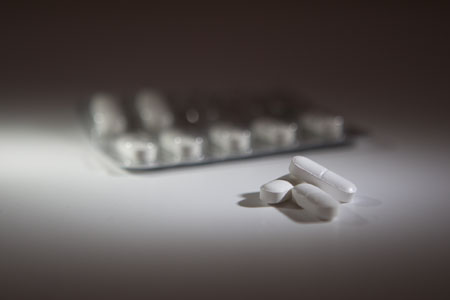Paxil Medication
What is Paxil?
Also known by its generic name paroxetine hydrochloride, Paxil is an antidepressant medication belonging to the Selective Serotonin Reuptake Inhibitor (SSRI)category. It is used to treat different conditions such as major depression, obsessive-compulsive disorder, generalised anxiety disorder and post-traumatic stress disorder. As Paxil is an SSRI, it has a very low potential for addiction. Unlike other similar medications such as Xanax, Klonopin and Ativan- which have a high possibility of abuse and dependence – Paxil is a good choice for people in recovery.
The medication Paxil was first introduced by GlaxoSmithKline (a pharmaceutical company formerly known as SmithKline) in 1992. When the patent expired in 2003, generic versions of Paxil became available on the market. Therefore, the drug can be obtained under other trade names such as Paxetin, Aropax, Deroxat and Sereupin.

How Paxil Works
Paxil works by controlling the levels of serotonin – a chemical linked to feelings of pleasure and happiness – in the brain. It inhibits serotonin reuptake, so that there’s more space between the brain’s nerve cells. This results in serotonin having a higher chance of activating receptors present on the next nerve cell, so that the user can experience a reduced sense of anxiety.
Paxil is a widely recognised antidepressant, but its use for recreational purposes continues to be low. In addition, it’s rare for Paxil users to develop dependence and addiction to the drug, even though the medication could become habit-forming when consistently used to treat social anxiety. Discontinuation of Paxil usage has also led to withdrawal symptoms in some cases, meaning users can experience certain side effects when they quit abruptly. Typically, consumption is gradually lowered in order to ensure a safe withdrawal from Paxil.
Call our admissions line 24 hours a day to get help.
Recommended Dosage for Paxil
Paxil comes in the form of immediate release or controlled release tablets. The former take hold as soon as they are ingested, while the latter release small amounts of medication throughout the course of the day. The recommended dosages for Paxil are 10mg, 20mg, 30mg and 40mg. The controlled release form of the drug (Paxil CR) is also available in 12.5mg, 25mg and 37.5mg tablets.
As with all antidepressants, it can take a few weeks of therapy before users feel the full impact of the drug. Doses are often adjusted accordingly, with the dose for depression being lower than that prescribed for panic disorders and obsessive-compulsive disorders. In addition, debilitated individuals, elderly patients, and those with certain liver or kidney diseases may require lower doses. This is because such patients metabolise and eliminate Paxil at a slower rate and are therefore more likely to develop high blood pressure and toxicity.

Possible Side Effects of Paxil
Virtually all pharmaceuticals can induce side effects of some kind. The possible side effects of Paxil consumption include nausea, headache, drowsiness, dry mouth, weight change, restlessness, as well as sexual side effects(for example, decreased sex drive, impotence or difficulty having an orgasm). These side effects are essentially mild and should taper off with time (except the sexual side effects, which tend to continue). In rare cases, Paxil can also cause more severe side effects, which if experienced should be reported to a doctor as soon as possible.
More serious side effects of Paxil use include high fever, peeling or blistering of the skin, unusual bleeding, blurred vision, fast or uneven heartbeat, seizures, trembling and fever. Any new or worsening symptoms should also be brought to the attention of a doctor, such as mood or behavioural changes, insomnia or trouble sleeping, unusual bone pain, rigid muscles, panic attacks and anxiety. Similarly, if you’re feeling irritable, hostile, agitated, restless, aggressive, more depressed, hyperactive (physically or mentally), impulsive or have suicidal thoughts, be sure to consult your doctor.
The Use of Paxil in Addiction Treatment

Paxil is frequently prescribed in addiction rehabilitation centres. Many people dealing with addiction are also trying to cope with anxiety, depression or other co-occurring mental health issues. Commonly, an undiagnosed mental illness is one of the main reasons people choose to self-medicate with alcohol or drugs. In a rehab setting, mental health specialists therefore prescribe medications to treat the chemical source of the issue, combined with other strategies to deal with any underlying psychological problems.
This is where the use of Paxil may be especially relevant; the medication is typically used as part of a comprehensive treatment programme, as it cannot adequately address addiction or mental health issues on its own. Paxil can also be applied in the treatment of other mental health conditions, such as eating disorders and PTSD.
Sometimes, the symptoms of withdrawal and co-occurring mental health issues that occur in treatment and recovery can be alleviated with the use of anti-depressants and anti-anxiety medications. Due to its lack of dependence and effectiveness in treating depression, Paxil is usually prescribed for clients in recovery. Anxiety is one of the common symptoms associated with drug and alcohol withdrawal; it can have crippling effects on a user. As a result of anxiety, recovering patients might be incapable of making significant progress in therapy or even focusing on the recovery process. Paxil can be prescribed in such instances to alleviate anxiety, so that clients can concentrate on making a full recovery.
Risk of Paxil Addiction
While addiction to Paxil is rare, it can happen. Some medical experts believe that patients struggling with social anxiety can become dependent on the medication. Even though SSRIs are regarded as a non-habit-forming class of medication, addiction can take hold if the drugs are abused in high doses for a prolonged period. Some users attempt to attain a particular‘high’ by taking several doses of Paxil at once. The result is a significant boost in serotonin that can be compared to the feeling of euphoria induced from more addictive drugs.
Though Paxil is not physically addictive, the short-term psychological effects of such misuse can be habit-forming. In addition, the likelihood of addiction is increased when the drug is abused alongside alcohol or other drugs, which is one of the major ways SSRIs are abused.
When to Avoid Paxil
Paxil should not be taken by children and adolescents, as the medication can potentially trigger suicidal ideation and other forms of self-harm – especially in people under the age of 18. In addition, using illegal drugs and drinking alcohol can negatively interfere with the effects of Paxil in the system. Alcohol and drugs can increase the sedation effects of Paxil and also weaken the potency of the drug. Of course, people undergoing treatment for substance addiction shouldn’t be drinking or using drugs to begin with.
Paxil should also be avoided by pregnant women. Studies have shown that the likelihood of birth defects is significantly higher when Paxil is used during early pregnancy. While there are instances where taking Paxil during pregnancy may have more benefits than risks, the decision to use the medication should only be made by a supervising doctor. Pregnant women undergoing addiction treatment need close monitoring to ensure their safety, as well as that of their foetuses.
Call our admissions line 24 hours a day to get help.

